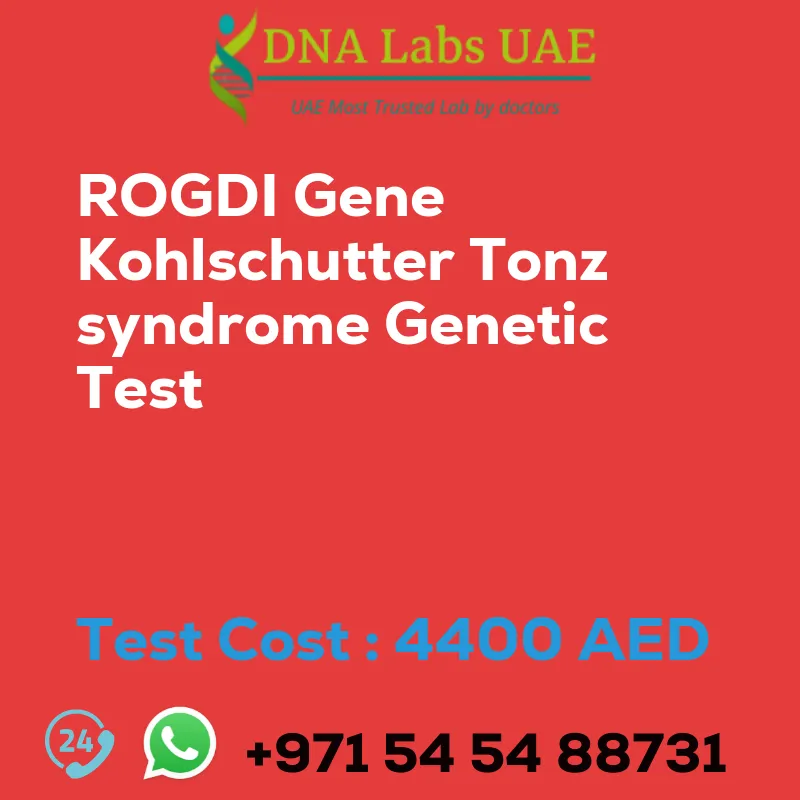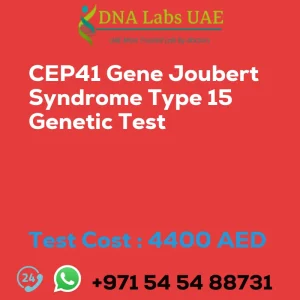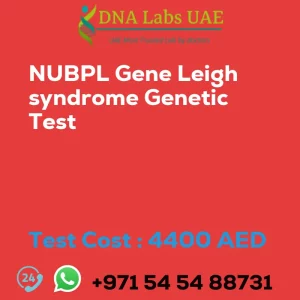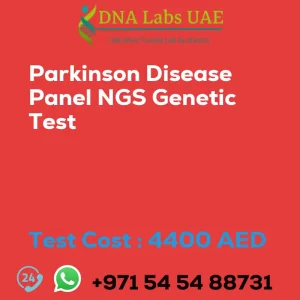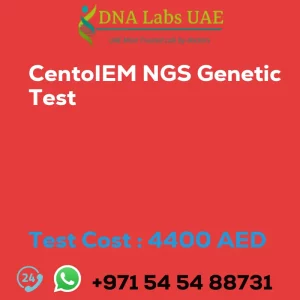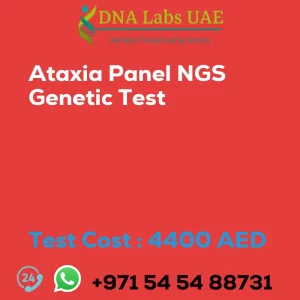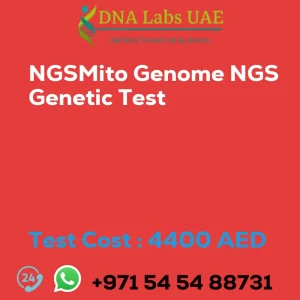ROGDI Gene Kohlschutter Tonz Syndrome Genetic Test
Test Details
The ROGDI (Rogdi Gene) Kohlschutter Tonz Syndrome NGS (Next-Generation Sequencing) Genetic Test is a diagnostic test used to identify mutations or changes in the ROGDI gene associated with Kohlschutter Tonz syndrome.
Kohlschutter Tonz syndrome is a rare genetic disorder characterized by intellectual disability, seizures, movement problems, and a characteristic facial appearance. It is caused by mutations in the ROGDI gene, which is involved in the development and function of the brain.
NGS is a high-throughput sequencing technology that allows for the simultaneous sequencing of multiple genes or the entire genome. In the context of genetic testing, NGS can be used to analyze the ROGDI gene and identify any mutations or changes that may be present.
Test Components and Price
- Test Name: ROGDI Gene Kohlschutter Tonz Syndrome Genetic Test
- Components: NGS Technology
- Price: 4400.0 AED
- Sample Condition: Blood or Extracted DNA or One drop Blood on FTA Card
- Report Delivery: 3 to 4 Weeks
- Test Type: Neurological Disorders
- Doctor: Neurologist
- Test Department: Genetics
Pre Test Information
Clinical History of Patient who is going for ROGDI Gene Kohlschutter Tonz Syndrome NGS Genetic DNA Test. A Genetic Counselling session to draw a pedigree chart of family members affected with ROGDI Gene Kohlschutter Tonz syndrome.
Test Procedure
The ROGDI Kohlschutter Tonz Syndrome NGS Genetic Test involves obtaining a DNA sample, typically through a blood sample or a cheek swab. The DNA is then sequenced using NGS technology to identify any mutations or changes in the ROGDI gene.
Test Results and Implications
The results of the test can help confirm a diagnosis of Kohlschutter Tonz syndrome and provide information for genetic counseling and management of the condition. It is important to note that genetic testing for Kohlschutter Tonz syndrome is typically performed by healthcare professionals specializing in genetics or genetic counseling.
The test may not be widely available and may require a referral from a healthcare provider. Additionally, the test may have limitations, and a negative test result does not completely rule out the possibility of having the condition.
| Test Name | ROGDI Gene Kohlschutter Tonz syndrome Genetic Test |
|---|---|
| Components | |
| Price | 4400.0 AED |
| Sample Condition | Blood or Extracted DNA or One drop Blood on FTA Card o |
| Report Delivery | 3 to 4 Weeks |
| Method | NGS Technology |
| Test type | Neurological Disorders |
| Doctor | Neurologist |
| Test Department: | Genetics |
| Pre Test Information | Clinical History of Patient who is going for ROGDI Gene Kohlschutter Tonz syndrome NGS Genetic DNA Test A Genetic Counselling session to draw a pedigree chart of family members affected with ROGDI Gene Kohlschutter Tonz syndrome |
| Test Details |
ROGDI (Rogdi Gene) Kohlschutter Tonz Syndrome NGS (Next-Generation Sequencing) Genetic Test is a diagnostic test used to identify mutations or changes in the ROGDI gene associated with Kohlschutter Tonz syndrome. Kohlschutter Tonz syndrome is a rare genetic disorder characterized by intellectual disability, seizures, movement problems, and a characteristic facial appearance. It is caused by mutations in the ROGDI gene, which is involved in the development and function of the brain. NGS is a high-throughput sequencing technology that allows for the simultaneous sequencing of multiple genes or the entire genome. In the context of genetic testing, NGS can be used to analyze the ROGDI gene and identify any mutations or changes that may be present. The ROGDI Kohlschutter Tonz Syndrome NGS Genetic Test involves obtaining a DNA sample, typically through a blood sample or a cheek swab. The DNA is then sequenced using NGS technology to identify any mutations or changes in the ROGDI gene. The results of the test can help confirm a diagnosis of Kohlschutter Tonz syndrome and provide information for genetic counseling and management of the condition. It is important to note that genetic testing for Kohlschutter Tonz syndrome is typically performed by healthcare professionals specializing in genetics or genetic counseling. The test may not be widely available and may require a referral from a healthcare provider. Additionally, the test may have limitations, and a negative test result does not completely rule out the possibility of having the condition. |

